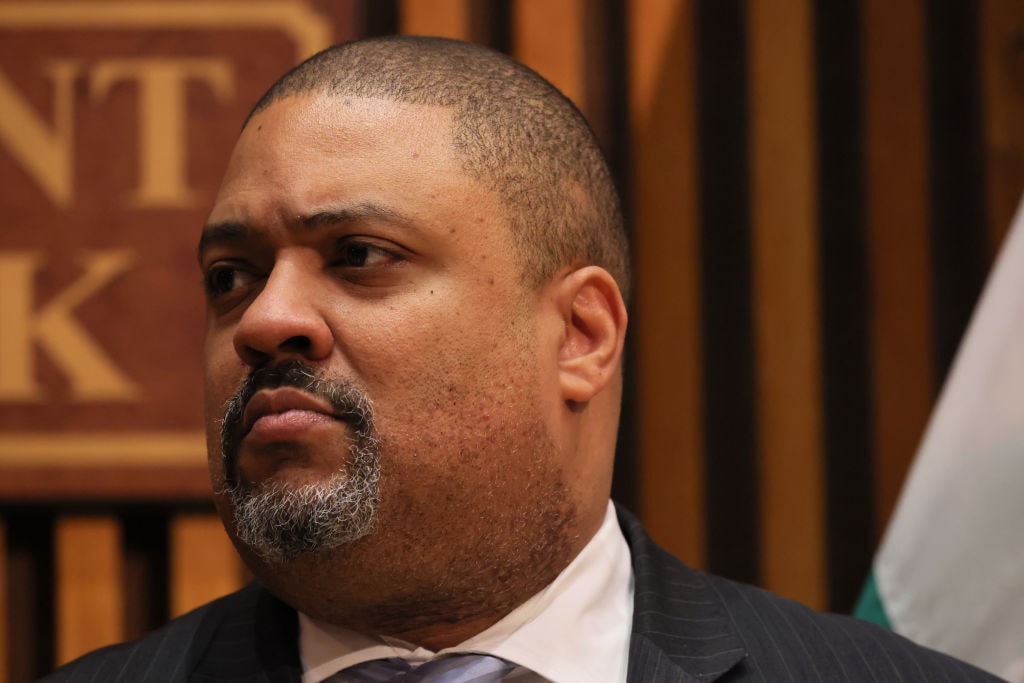



Manhattan District Attorney Alvin Bragg presented possible options this week for handling the sentencing of former and future President Trump in relation to the 34 felony verdicts against him. The 82-page filing detailed an array of choices for Judge Juan Merchan to consider but notably failed to include a single option to allow the incoming commander-in-chief the possibility of an appeal. This omission is telling, more so because the legacy media seems to have missed the implication entirely.
To suggest that the convictions in the so-called “hush money” trial were questionable is an understatement. The fact that these were novel charges, coupled with a convoluted legal argument to turn paperwork filings into felonies, begs a review. And that’s what the appeals system is supposed to do. An appeal process is as much a part of delivering justice as the initial court case – why else would the United States have 13 appellate courts across 12 regions, each sitting just below the Supreme Court?
The litany of options Bragg presented was crafted to deny Donald Trump the process of appeal and keep him stuck with the moniker “convicted felon” throughout his presidency. What remains is whether Merchan will also seek to deny the president-elect his day in court.
The filing – unsealed on Tuesday, December 10 – marked the first time that Bragg has put forward the idea that the case could end without sentencing Trump. While this may seem like a win for the president, both leading suggestions would mean Trump remains in legal limbo or is stuck with the felon tag throughout his time in the White House.
Politico made a succinct summary of what is on the table:
“The options include simply suspending the case until Trump’s term is over. Merchan could also announce in advance that he won’t sentence Trump to any jail time and won’t consider Trump’s conduct as president when determining a future sentence — a declaration, prosecutors said, that would dramatically reduce concerns about whether the looming sentence could impede Trump’s presidency.”
An abatement in this case would essentially mean the proceedings stop as though the defendant has died, and therefore, the conviction would stand, but no sentencing aspect would occur.
So, in the first case, Trump would have to report to Merchan’s courtroom when the 2028 transition to a new president is complete, or he would not have further dealings with the court but would forever be labeled a felon. Each of these options seems to preclude Trump from putting forth an appeal, as is his right under the law.
The prosecution of Donald Trump was a political decision on which Alvin Bragg has sought to secure his name. As New Yorkers buckle under the weight of rampant unprosecuted crime, the Manhattan DA turned his attention and efforts to something that has never before been considered a criminal act. Yet some applaud Mr. Bragg’s focus.
Just last week, Bragg was the honored recipient of the Downtown Independent Democrat’s “Elected Politician of the Year” award, “[f]or his leadership in helping New Yorkers of all backgrounds feel safe during these tumultuous times, particularly through his office’s Advanced Hate Crimes Unit and increased resources for gun trafficking enforcement.”
The Manhattan DA has accrued a wealth of political capital for his prosecution of Trump. That capital could be spent well on higher office, which, given his wide name recognition, would not be beyond the realms of possibility. His crowning achievement in the eyes of the political left is that he “got Trump.” It doesn’t matter to him whether Trump goes to jail or not, he will forever be the guy who held Donald Trump accountable. But if the case ever saw the inside of an appeals court, that pinnacle could be swiftly toppled.
It does not seem that the filing was designed to deliver justice but rather to ensure that the legacy of DA Bragg continues to flourish.
